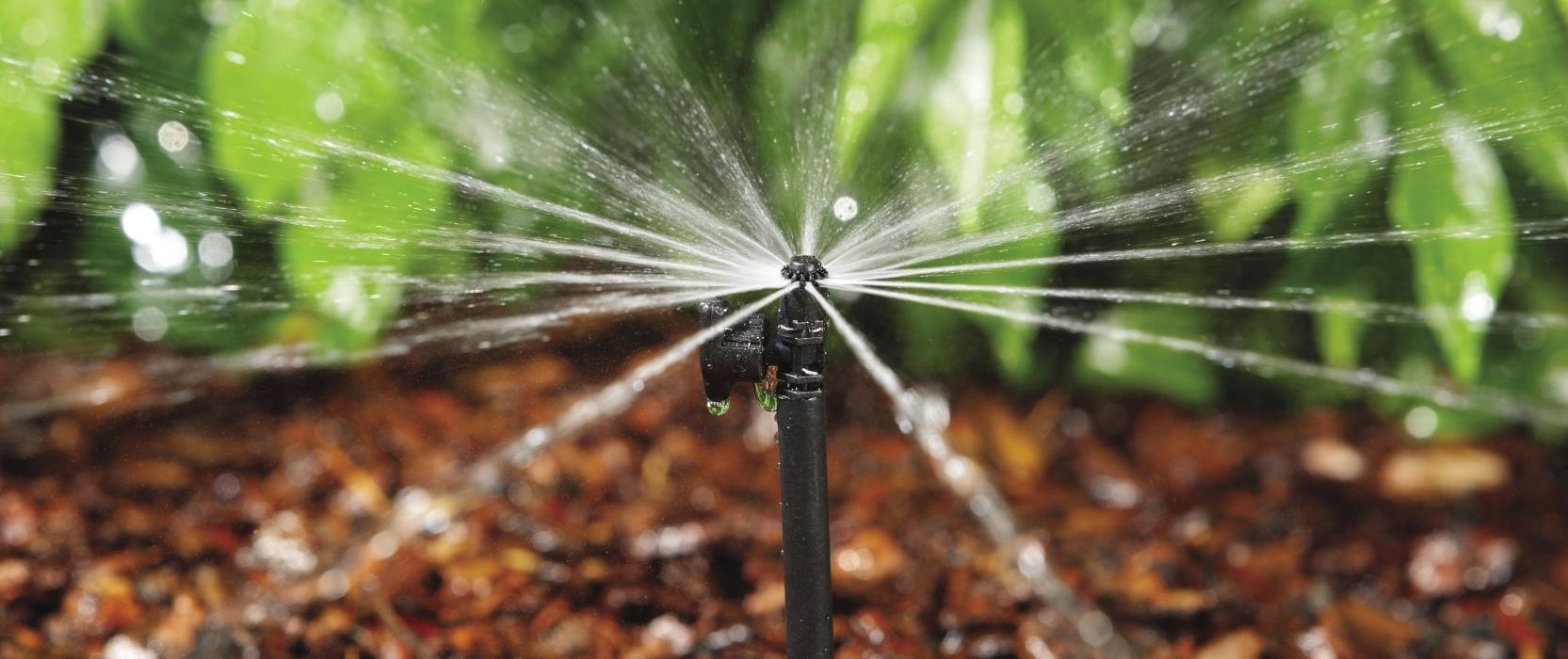Now that you’ve installed your Neta irrigation system, you’re probably wondering when to water, how often and for how long. Well, the water’s journey will begin at the tap so let’s start there.
We recommend handing over responsibility of watering to an electronic tap timer. This Neta Two Zone Tap Timer splits your line into two giving you access to water without touching your irrigation system. Alternatively, you can use a one zone and split the line at the tap into two, three or even four. Either way, once programmed, the timer will take care of the rest.
It will be here at the tap that you will add a pressure reducer if the pressure is too high. It’s a good idea to insert an in-line filter to keep your water as clean as possible to avoid blockage from debris.
A big question we get asked is how often you should water? Well, that question leads to MORE questions. What plants are you watering? Are they newly planted? And what type of soil is hosting them? You’ll find some suggestions at the back of the Neta irrigation planner that will help you get started. Keep a close eye on your plants and adjust them accordingly.
It goes without saying that you’ll need to adjust your automatic irrigation program at the start of every season and make sure you use the rain delay function when it rains. When determining how long to make each irrigation session, test out your soil’s water retention by running your system for 10 minutes. After a couple of hours, dig down into the soil and see how far the water has penetrated. Add another 10 minutes if not sufficient, and so on. The deeper the water penetration, the deeper the roots will go which will make for a healthy plant.
By choosing a Neta irrigation system, you’ve already become more water wise. I’ve got a few other tips to help you become even wiser.
- Watering at the right time is essential. Early morning is best and you can leave that chore to the Neta timer.
- Choosing the right plants such as natives and other plants that need less water is also smart. And the birds and bees will love you for it.
- Don’t forget to mulch. Not only will it reduce evaporation and water run-off, it will provide nutrients, restrict weed growth and look great.
- A special note for lawns, if your lawn doesn’t spring back when you step on it, you’ll need to water it. Water thoroughly to encourage deeper roots, giving you a stronger, more drought-resistant lawn.
The best advice is to listen to your plants and adjust your irrigation program accordingly. They’ll let you know quite quickly when you are under- or over-watering them. Once you’ve mastered the art of watering, they will reward you with bountiful harvest, colourful flowers and beautiful greenery.

You Might Also Like
Easy Irrigation with Neta – Pots,Borders, Beds & Lawns
It takes a lot of work to keep your gardens looking great, the chores are never ending. It’s a good...
View NowEasy Irrigation with Neta – Installation Tips
Here are a few tips and tricks to make the installation of your irrigation system easier. First thing to look...
View Now